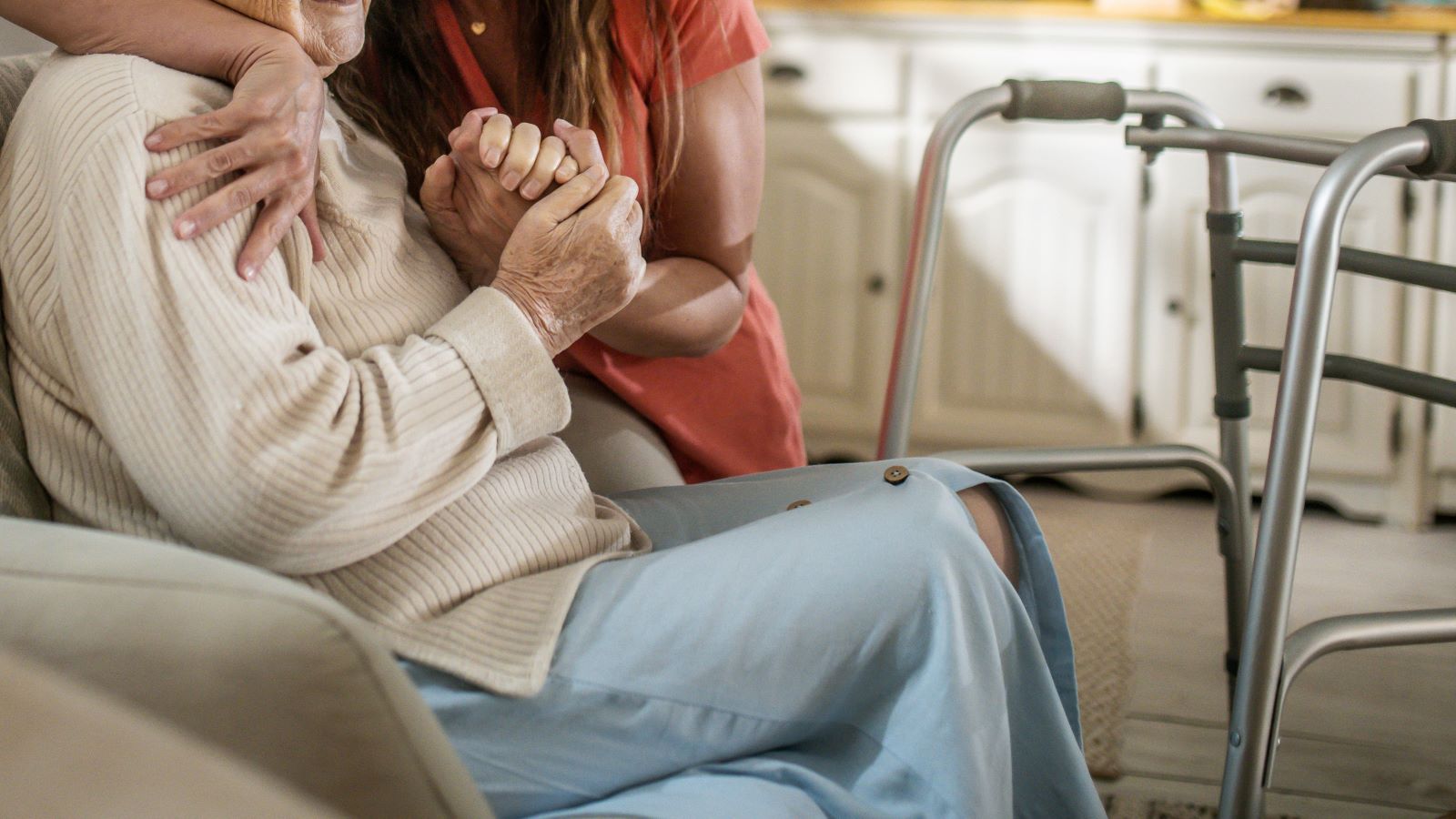<< Back
9 Signs You (or Mom) Could Benefit From Assisted Living

October 19, 2025
Maybe it starts small — a stack of laundry that never got folded, a missed meal, a stumble they didn’t mention.
These moments can be easy to brush off, but they’re often early signs that a loved one might need more support.
“There’s no perfect moment to start this conversation,” says Jennifer Doty, BSW, assistant executive director of Hartford HealthCare’s Mulberry Gardens and resident service coordinator. “But there are signs. And recognizing them early can help you avoid a crisis later.”
Here’s what to watch for – and how assisted living can make a difference.
1. Daily tasks are slipping
Unpaid bills. Dishes stacking up. Missed showers or meals. When everyday routines start to slide, it’s often more than just forgetfulness or a “lazy day.”
These small signs can point to something bigger — like declining energy, mobility issues or early cognitive changes. It’s easy to overlook them at first, but they tend to add up over time.
“When things like hygiene or eating start to fall through the cracks, it’s a sign someone might need more support before it leads to bigger issues,” says Doty.
2. Forgetfulness is putting them at risk
Everyone forgets things. But when forgetfulness starts leading to real danger — like leaving the stove on, taking too much medication or wandering outside — it’s time to step in.
Memory changes can happen gradually, and loved ones often find ways to cover for them. That’s why it’s so important to notice patterns, not just isolated events.
“It’s not just about memory – it’s about how those lapses affect their independence and safety,” Doty explains.
> Related: Alzheimer’s Disease Can Cause These 7 Communication Challenges
3. They are getting lost
Is your loved one getting lost while driving, getting confused about time or wandering off?
These moments can be disorienting and frightening — for both your loved one and for you.
“That’s a major safety concern and a sign they need some help to keep themselves and the people around them safe,” says Doty.
4. Medication mix-ups are happening
Managing multiple prescriptions isn’t easy – even for people who are organized.
If you notice pills left untouched, expired bottles, or confusion about when to take what, it may be time to step in.
“Missing medications is often a sign someone may need extra support,” says Doty. “In assisted living, nothing gets skipped or taken incorrectly – it’s one less thing to worry about.”
5. They’ve had a fall – or fear one
Falls are one of the leading causes of serious injury in older adults, and even one can trigger lasting fear.
If your loved one starts avoiding stairs, certain rooms, or walking altogether, it may be because they’re afraid of falling again — or struggling with balance and strength.
“Bathrooms are especially risky,” says Doty. “And if they fall and can’t get up – or don’t tell anyone – it’s time to act quickly.”
> Related: How to Prevent Falls and Injuries in Seniors
6. Their personality has shifted
Maybe they’re less talkative. Maybe they’ve stopped cooking, reading, or joining family gatherings.
Changes in mood or personality can signal depression, loneliness, or cognitive decline — all of which can worsen when someone spends too much time alone.
“Families will say, ‘Mom just isn’t herself lately,’” Doty says. “That loss of spark can mean they’re no longer thriving at home.”
7. You’re constantly worried
If you find yourself calling every night “just to check,” or lying awake wondering if they’re okay, you’re not alone. Caregiver worry can take a toll.
Constant stress and lack of rest can lead to burnout, which helps no one — not you, and not your loved one.
“You may be suffering from caregiver burnout,” says Doty. “You deserve peace of mind – and they deserve the right support.”
8. Excuses are piling up
“I already ate.”
“I took it this morning.”
“I’ll do it tomorrow.”
At first, these excuses may sound harmless. But over time, they can become a pattern — a way of covering up struggles with tasks that once came easily.
“They may not even realize they’re struggling,” Doty says. “That’s why it’s important to gently observe patterns over time.”
9. Something feels off
Sometimes, it’s just a gut feeling. Maybe they seem quieter, less steady, or not quite themselves. You can’t pinpoint what’s changed — only that something has.
Trust that instinct. You know your loved one better than anyone else.
“Learning more doesn’t mean making a decision today,” says Doty. “But it gives you clarity – and options.”
Is this the next step?
In assisted living, residents receive 24-hour support, personalized care and a home-like setting that helps them feel safe, connected and cared for.
“Choosing assisted living isn’t about giving something up,” says Doty. “It’s about helping someone continue to live with dignity, purpose and connection. If you’re wondering what that might look like for you or your loved one, it all starts with a simple conversation.”
A little extra help and the right assisted environment can make daily living safer and less stressful for everyone.